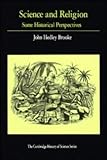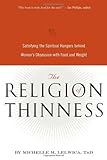|
|
Help |
| Home - Psychology - Psychology And Religion (Books) | |
e99 Online Shopping Mall
|
|
Help |
| Home - Psychology - Psychology And Religion (Books) | |
| Back | 81-100 of 100 |
click price to see details click image to enlarge click link to go to the store
| 81. The Psychology of Mature Spirituality: Integrity, Wisdom, Transcendence | |
 | Paperback: 224
Pages
(2000-11-10)
list price: US$37.50 -- used & new: US$26.82 (price subject to change: see help) Asin: 0415179602 Average Customer Review: Canada | United Kingdom | Germany | France | Japan |
|
Editorial Review Product Description Customer Reviews (1)
| |
| 82. Film as Religion: Myths, Morals, and Rituals by John C. Lyden | |
 | Paperback: 299
Pages
(2003-06-01)
list price: US$21.00 -- used & new: US$13.49 (price subject to change: see help) Asin: 0814751814 Average Customer Review: Canada | United Kingdom | Germany | France | Japan |
|
Editorial Review Product Description Lyden surveys the state of the study of religion and film, offering an overview of previous methods before presenting his own. Rather than seeking to uncover hidden meanings in film detectable only to scholars, Lyden emphasizes how film functions for its audiences—the beliefs and values it conveys, and its ritual power to provide emotional catharsis. He includes a number of brief cases studies in which he applies this method to the study of film genres—including westerns and action movies, children's films, and romantic comedies—and individual films from The Godfather to E.T., showing how films can function religiously. Customer Reviews (2)
| |
| 83. Psychology And The Church: Critical Questions, Crucial Answers by Dave Hunt, T.a. McMahon | |
 | Paperback: 256
Pages
(2007-07-01)
list price: US$25.99 -- used & new: US$9.70 (price subject to change: see help) Asin: 1928660614 Average Customer Review: Canada | United Kingdom | Germany | France | Japan |
|
Editorial Review Product Description Customer Reviews (3)
| |
| 84. Science and Religion: From Conflict to Conversation by John F. Haught | |
 | Paperback: 240
Pages
(1995-11)
list price: US$14.95 -- used & new: US$8.00 (price subject to change: see help) Asin: 0809136066 Average Customer Review: Canada | United Kingdom | Germany | France | Japan |
|
Editorial Review Product Description Customer Reviews (6)
| |
| 85. Theology, Psychology and the Plural Self (Ashgate Science and Religion Series) by Léon Turner | |
 | Hardcover: 238
Pages
(2008-12-01)
list price: US$99.95 -- used & new: US$85.38 (price subject to change: see help) Asin: 0754665194 Average Customer Review: Canada | United Kingdom | Germany | France | Japan |
|
Editorial Review Product Description Customer Reviews (1)
| |
| 86. The Psychology of Religious Fundamentalism by Ralph W. HoodJr. PhD, Peter C. Hill PhD, W. Paul Williamson Phd | |
 | Hardcover: 247
Pages
(2005-03-31)
list price: US$40.00 -- used & new: US$30.75 (price subject to change: see help) Asin: 1593851502 Average Customer Review: Canada | United Kingdom | Germany | France | Japan |
|
Editorial Review Product Description Customer Reviews (1)
| |
| 87. Acts of Faith: Explaining the Human Side of Religion by Rodney Stark, Roger Finke | |
 | Paperback: 350
Pages
(2000-08-07)
list price: US$24.95 -- used & new: US$18.79 (price subject to change: see help) Asin: 0520222024 Average Customer Review: Canada | United Kingdom | Germany | France | Japan |
|
Editorial Review Product Description Customer Reviews (8)
| |
| 88. Hinduism and Jungian Psychology by J. Marvin Spiegelman, Arwind U. Vasavada | |
| Paperback: 207
Pages
(1987-05)
list price: US$9.95 -- used & new: US$41.14 (price subject to change: see help) Asin: 0941404447 Canada | United Kingdom | Germany | France | Japan | |
| 89. Peaceable Psychology, A: Christian Therapy in a World of Many Cultures by Alvin Dueck, Kevin Reimer | |
 | Paperback: 288
Pages
(2009-11-01)
list price: US$24.99 -- used & new: US$8.70 (price subject to change: see help) Asin: 158743105X Average Customer Review: Canada | United Kingdom | Germany | France | Japan |
|
Editorial Review Product Description Customer Reviews (2)
| |
| 90. Science and Religion: Some Historical Perspectives (Cambridge Studies in the History of Science) by John Hedley Brooke | |
 | Paperback: 434
Pages
(1991-05-31)
list price: US$31.99 -- used & new: US$11.00 (price subject to change: see help) Asin: 0521283744 Average Customer Review: Canada | United Kingdom | Germany | France | Japan |
|
Editorial Review Product Description Customer Reviews (3)
| |
| 91. Psychology and Kabbalah by Z'Ev Ben Shimon Halevi | |
 | Paperback: 288
Pages
(1992-06)
list price: US$18.95 -- used & new: US$7.28 (price subject to change: see help) Asin: 0877285292 Canada | United Kingdom | Germany | France | Japan |
|
Editorial Review Product Description | |
| 92. The Principles of Buddhist Psychology (Suny Series in Buddhist Studies) by David J. Kalupahana | |
| Hardcover: 236
Pages
(1987-07)
list price: US$54.50 Isbn: 0887064043 Average Customer Review: Canada | United Kingdom | Germany | France | Japan | |
Customer Reviews (1)
Part Two, a further examination of these concepts in later Buddhist schools of thought, is probably of interest to those at a slightly more advanced level of scholarship. ... Read more | |
| 93. Modern Psychology and Ancient Wisdom: Psychological Healing Practices from the World's Religious Traditions by Neil Douglas-Klotz, Dwight Judy, Sheldon Kramer, Stephen G. Gilligan | |
 | Hardcover: 284
Pages
(2003-01-14)
list price: US$49.95 -- used & new: US$39.50 (price subject to change: see help) Asin: 0789017512 Average Customer Review: Canada | United Kingdom | Germany | France | Japan |
|
Editorial Review Product Description Customer Reviews (5)
| |
| 94. Integrating Faith and Psychology: Twelve Psychologists Tell Their Stories (Christian Association for Psychological Studies) | |
 | Paperback: 272
Pages
(2010-07-29)
list price: US$24.00 -- used & new: US$13.24 (price subject to change: see help) Asin: 0830838856 Canada | United Kingdom | Germany | France | Japan |
|
Editorial Review Product Description | |
| 95. Blood That Cries Out From the Earth: The Psychology of Religious Terrorism by James Jones | |
 | Hardcover: 208
Pages
(2008-04-11)
list price: US$24.95 -- used & new: US$13.89 (price subject to change: see help) Asin: 019533597X Average Customer Review: Canada | United Kingdom | Germany | France | Japan |
|
Editorial Review Product Description Customer Reviews (5)
| |
| 96. Science and Religion: Are They Compatible? | |
 | Paperback: 368
Pages
(2003-04)
list price: US$21.98 -- used & new: US$3.45 (price subject to change: see help) Asin: 1591020646 Average Customer Review: Canada | United Kingdom | Germany | France | Japan |
|
Editorial Review Product Description Among the topics discussed are the Big Bang and the origin of the universe, intelligent design and creationism versus evolution, the nature of the soul, near-death experiences, communication with the dead, why people believe in God, and the relationship between religion and ethics. In this stimulating collection of articles on the subject, the editors have assembled the thoughts of scientists from various disciplines. Included are works by such distinguished authors as Sir Arthur C. Clarke, Richard Dawkins, Richard Feynman, Kendrick Frazier, Martin Gardner, Owen Gingerich, Stephen Jay Gould, James Lovelock, Steven Pinker, Eugenie Scott, Neil deGrasse Tyson, Steven Weinberg, and many other eminent scientists and scholars. Customer Reviews (11)
| |
| 97. Mysticism and Cognition: The Cognitive Development of John of the Cross as Revealed in his Works (Studies in Religion, 1) | |
 | Paperback: 299
Pages
(2000-02-01)
list price: US$24.95 -- used & new: US$15.06 (price subject to change: see help) Asin: 8772887826 Canada | United Kingdom | Germany | France | Japan |
|
Editorial Review Product Description The author notes that her own understanding of consciousness is based upon S.A. Greenfield's theory of consciousness and A.R. Damasio's theory of emotions. In her own view, she says, the main cause of the promotion of mystical development is the recurrence of such mystical states of consciousness. This well-researched book would be of great interest to scholars of religion, mysticism, and psychology and others who wish to learn more about our understanding of mystic states and how they affect and are affected by the persons who have experienced them through history. | |
| 98. Handbook of Religion and Mental Health | |
 | Hardcover: 408
Pages
(1998-09-25)
list price: US$124.00 -- used & new: US$95.10 (price subject to change: see help) Asin: 0124176453 Average Customer Review: Canada | United Kingdom | Germany | France | Japan |
|
Editorial Review Product Description Customer Reviews (1)
| |
| 99. Visions of the Night: Dreams, Religion, and Psychology (S U N Y Series in Dream Studies) by Kelly Bulkeley | |
| Paperback: 256
Pages
(1999-09)
list price: US$29.95 -- used & new: US$15.95 (price subject to change: see help) Asin: 0791442845 Canada | United Kingdom | Germany | France | Japan | |
|
Editorial Review Product Description | |
| 100. The Religion of Thinness: Satisfying the Spiritual Hungers Behind Women's Obsession with Food and Weight by Michelle M. Lelwica | |
 | Paperback: 320
Pages
(2009-12-01)
list price: US$18.95 -- used & new: US$10.74 (price subject to change: see help) Asin: 0936077557 Average Customer Review: Canada | United Kingdom | Germany | France | Japan |
|
Editorial Review Product Description Customer Reviews (8)
| |
| Back | 81-100 of 100 |